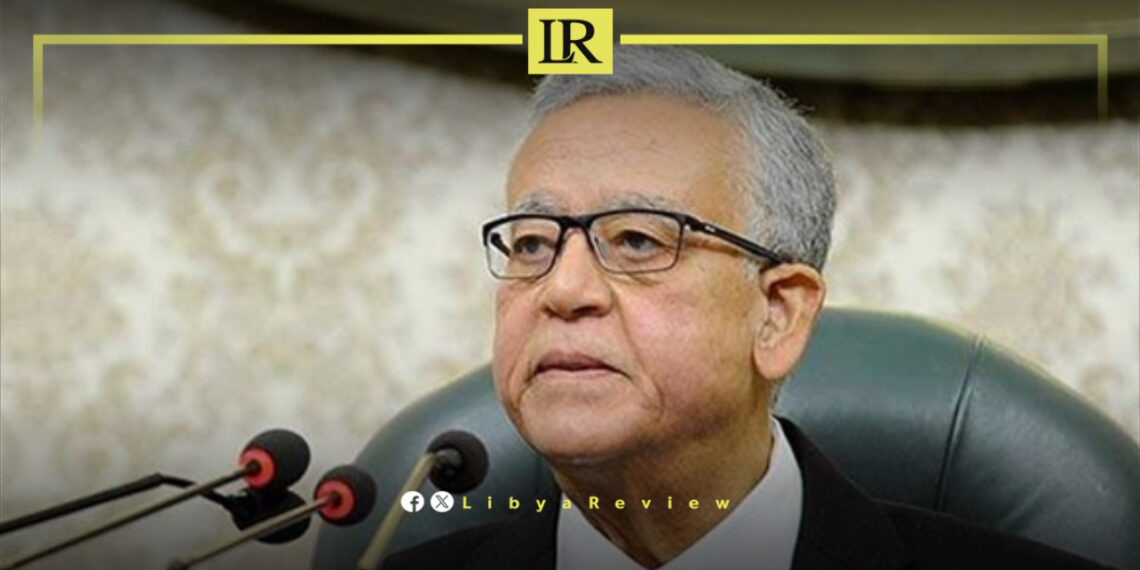Egypt Invites Libyan Parliamentary Leaders for Consultative Dialogue in Cairo
In a gesture that underscores Egypt’s profound engagement with Libyan matters and its continuous pursuit to enhance regional stability, Hanafi Gebali, the Speaker of the Egyptian House of Representatives, has extended a formal invitation to Aqeela Saleh, the Speaker of the Libyan House of Representatives, along with members of both the Libyan House and the High Council of State. This consultative meeting is scheduled to take place in Cairo from February 22 to 25. The invitation comes amidst the historical and close relations between the two nations, reinforcing Egypt’s ongoing assertion that Libya’s stability is integral to Egypt’s national security.
Strategic Implications of the Invitation This invitation is not merely a ceremonial gathering but reflects a deeper vision to bolster Libyan-Libyan dialogue, aiming to create a conducive environment for substantial agreements about the forthcoming phase. Cairo remains a key player in the Libyan file, not just for its political role but also as a principal facilitator of consensus that could potentially end the political division that has troubled Libya for years.
Egyptian Parliament Speaker Invites Aqeela Saleh and Libyan Delegates for a Consultative Meeting in Cairo to Discuss Political Cooperation and Libyan Stability from February 22 to 25. Significance of the Meeting’s Timing The consultative meeting arrives at a sensitive juncture as the Libyan scene witnesses rapid developments related to the unification of political institutions and resolving lingering disputes among various factions. While some internal and regional forces push for new paths to resolve the crisis, disagreements between the House of Representatives and the High Council of State remain a significant barrier to achieving comprehensive consensus.
The Egyptian invitation emerges at a moment demanding high national responsibility from all Libyan parties, particularly as the ongoing political split could worsen the country’s economic and security situations. The choice of Cairo as the venue sends a clear message of Egypt’s readiness to support any conciliatory path that benefits Libya and its people.
Anticipated Agenda of the Meeting According to sources close to both the Egyptian and Libyan parliaments, the consultative meeting will focus on several sensitive issues, notably:
Legislative Institution Unification: Discussing ways to enhance concordance between the House of Representatives and the High Council of State concerning fundamental laws and legislations.
Libyan Elections: Debating arrangements for the presidential and parliamentary elections and the challenges they pose.
Security File: Strengthening security cooperation between Libya and Egypt to address mutual security challenges.
Economic Relations Enhancement: Discussing mechanisms to support the Libyan economy through investments and joint cooperation.
Reactions of Libyan Parties to the Invitation Despite the importance of this invitation, the Libyan parties’ reactions may vary. Some members of the House of Representatives welcome the meeting as a real opportunity to mend rifts and end political deadlock, while others may show reservations, especially amid ongoing disagreements on crucial issues such as the mechanism for selecting the upcoming executive authority.
Egypt’s Role in the Libyan Crisis Egypt has consistently played an active role in the Libyan file, supported by several factors:
The historical and geographical ties between the two countries.
Shared security interests, where Libya’s stability is seen as a strategic necessity for Egypt’s national security.
Egypt’s continuous support for political efforts aimed at ending division and achieving stability.
Cairo has hosted numerous meetings over the past years that brought together Libyan factions, contributing to narrowing down differences on various issues, such as restructuring military and political institutions and formulating election laws.
Expected Outcomes of the Meeting While it is premature to determine the meeting’s final outcomes, some likely scenarios include:
Progress on some of the pending files, particularly concerning the elections.
Enhanced trust among Libyan parties, crucial for reaching conciliatory solutions.
A joint statement underscoring the importance of continued consultation and cooperation between the councils.
Announcing specific mechanisms to follow up on the meeting’s outcomes and ensuring their implementation on the ground.


